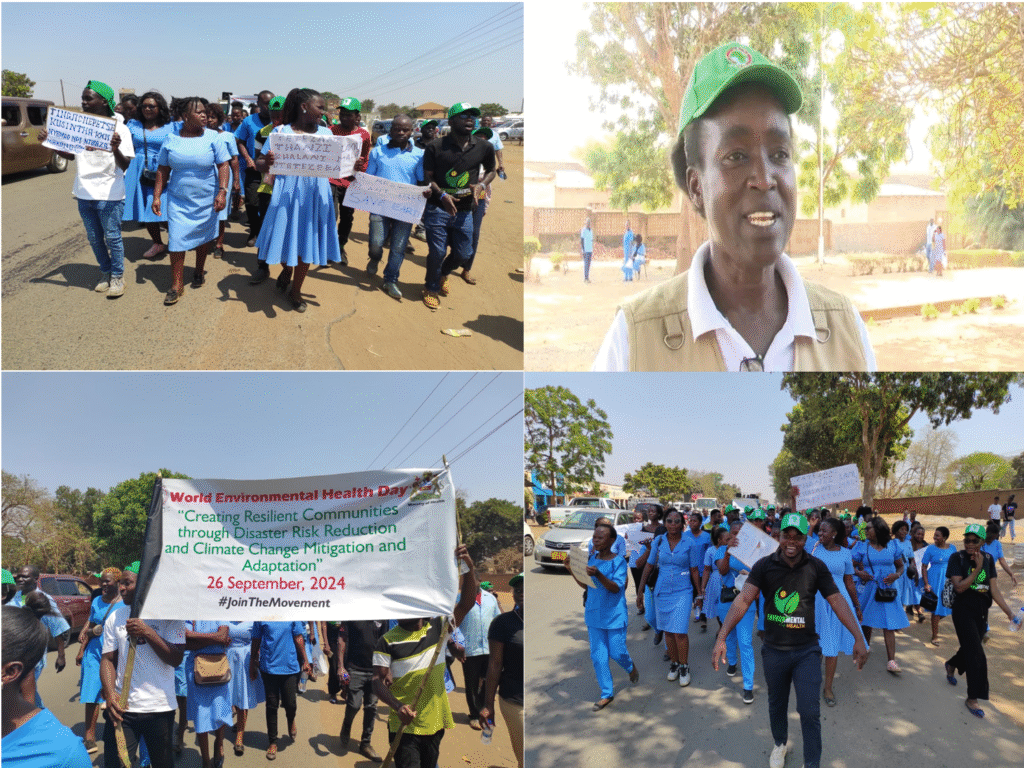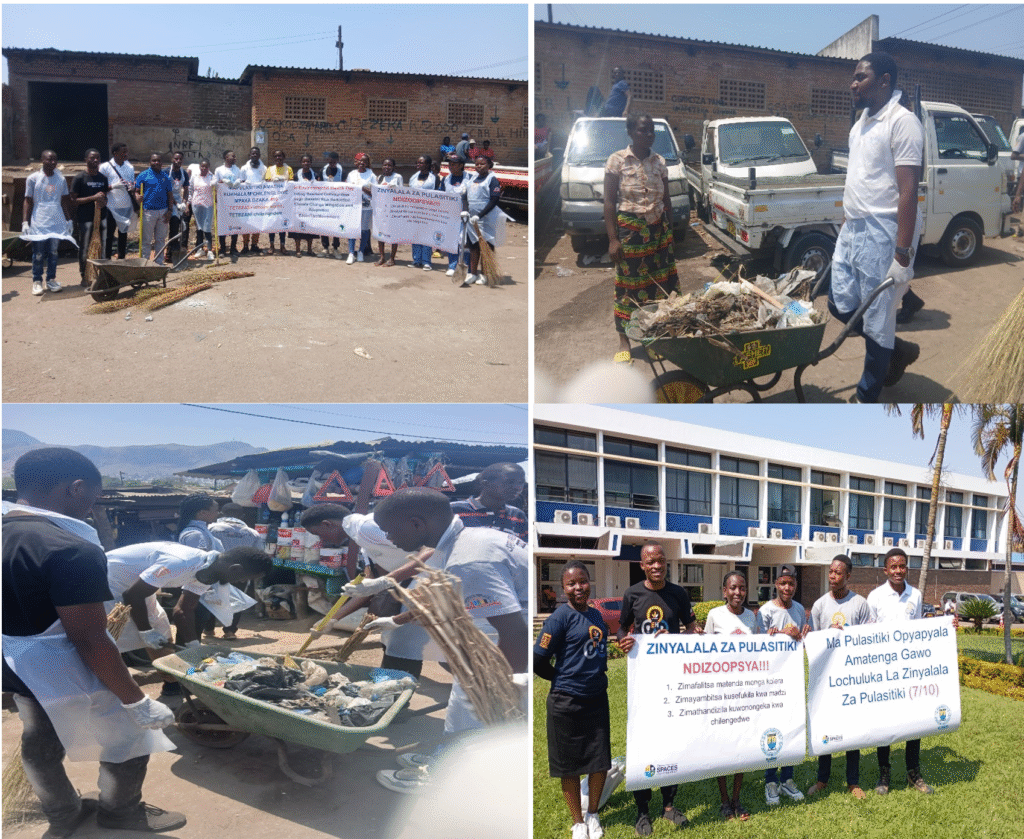On 26th September 2024, the Malawi Environmental Health Association (MEHA) joined the global community in commemorating World Environmental Health Day under the theme: “Creating Resilient Communities through Disaster Risk Reduction and Climate Change Mitigation and Adaptation.” This theme highlights the vital role Environmental Health Professionals (EHPs) play not only in protecting public health but also in building community resilience against the increasing threats posed by climate change and natural disasters.
This year’s observance emphasized the importance of proactive and sustainable strategies to safeguard vulnerable populations and ecosystems. MEHA’s participation underscored Malawi’s commitment to promoting healthy and sustainable living through the collective efforts of environmental health practitioners and local communities. It marks a significant step in addressing the pressing environmental challenges facing Malawi and other nations globally.
As part of the commemoration, the MEHA Lilongwe Chapter, in collaboration with Environmental Health students from the Malawi College of Health Sciences, organized a city-wide roadshow to raise awareness on anti-littering and the dangers of thin plastic use. This initiative aimed to mobilize community action toward environmental protection and to mitigate the health impacts associated with climate change.
During the roadshow, MEHA Lilongwe Chapter Lead, Gloria Guzani, called on all stakeholders to prioritize the development and implementation of policies that support climate action and disaster preparedness. The event brought together Environmental Health Officers, Health Surveillance Assistants, and students, who marched in solidarity to advocate for a cleaner, healthier environment.
By taking action at the grassroots level, MEHA continues to demonstrate leadership in Environmental Health and climate resilience, reinforcing the message that collective efforts are key to creating safer and more sustainable communities.

Figure 1:Lilongwe District Chapter WEHD Day
In addition, MEHA partnered with the Malawi University of Business and Applied Sciences (MUBAS) through its Environmental Health Society and the Centre for Water, Sanitation, Health & Appropriate Technology Development (WASHTED) to conduct a clean-up drive at Ndirande Market in Blantyre. This initiative aimed to further raise awareness on anti-littering and the dangers of thin plastic bag use. Urban markets like Ndirande face high levels of pollution, and this effort highlighted the urgent need for multi-stakeholder action in managing waste and reducing plastic pollution, which poses significant environmental and public health threats.
During the clean-up, WASHTED shared findings from a recent study quantifying plastic waste in Blantyre. The research revealed that thin plastics constitute the majority of waste in the city—underscoring the urgent need for coordinated, collective action. These findings were disseminated to the public through placards and informative talks during the event

Figure 2 : MUBAS EH Society and WASHTED Centre members during the cleanup exercise in Blantyre
The initiatives in Lilongwe and Blantyre serve as powerful examples of how professionals and communities can work together to promote environmental sustainability and disaster risk reduction. The combined educational programs, roadshows, and clean-up efforts aim to inspire individuals to take personal responsibility for the environment.
World Environmental Health Day offers a moment to reflect on the difference that individual and collective actions can make in addressing challenges such as pollution, climate change, and resource depletion. Through these initiatives, MEHA is issuing a call to action to its members and the public at large. Every effort to protect our environment; whether through reducing waste, conserving water, or promoting sustainable habits-contributes to a healthier and more resilient future.
Let us act today to protect tomorrow. Together, we can ensure the air we breathe, the water we drink, and the land we share remain clean, safe, and sustainable for generations to come.






